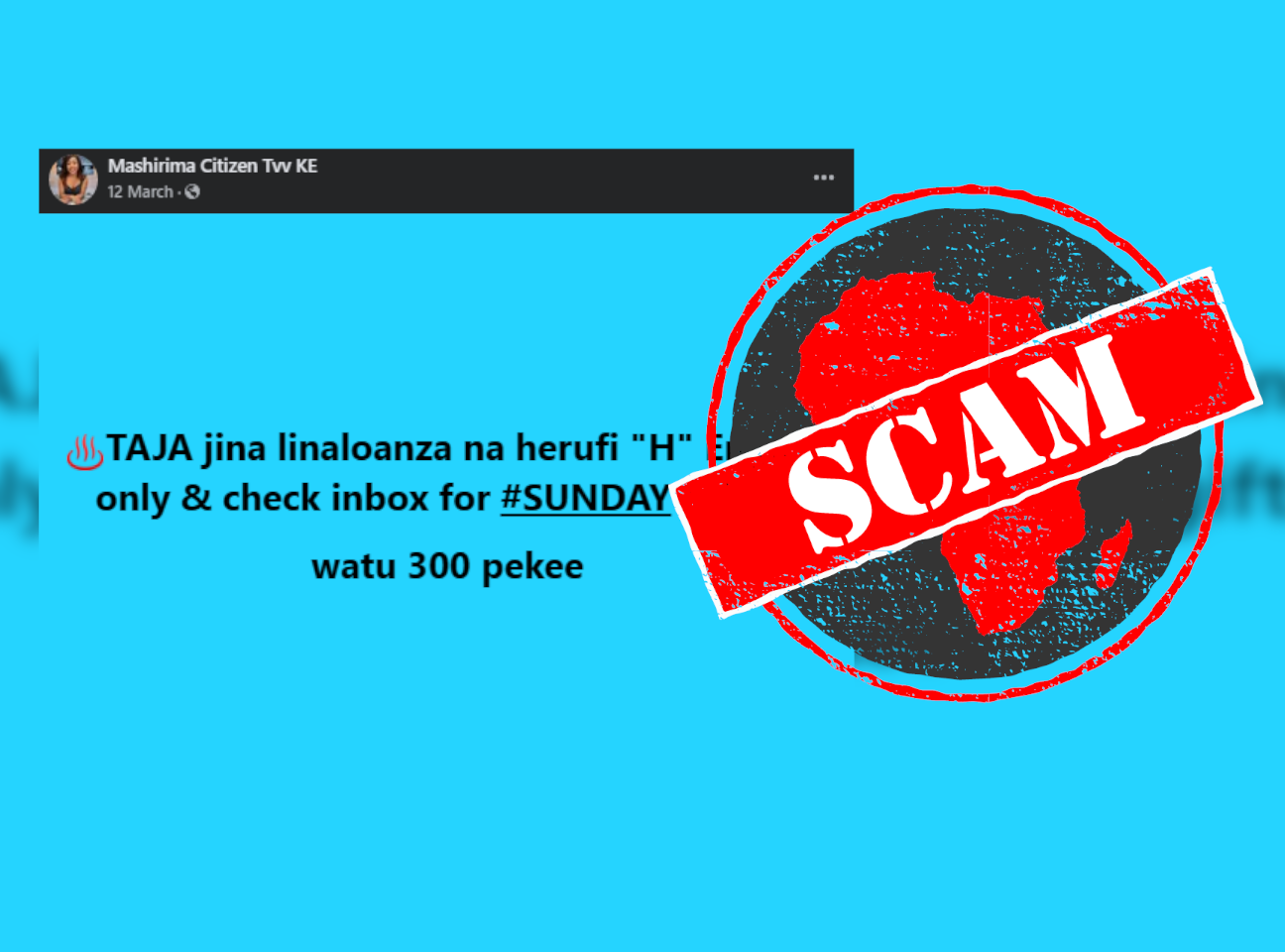IN SHORT: A well-known media personality would be the perfect vehicle to target social media users with promotions. The impersonators posing as the popular Mashirima Kapombe know this all too well.
The Facebook account Mashirima Citizen Tvv KE has been running promotions in a Facebook group in Kenya with over 289,000 members.
The account uses the name and photo of Mashirima Kapombe, a well-known anchor with Citizen TV, Kenya’s most watched TV station.
One post, dated 13 April 2023, reads: “TAJA jina linaloanza na herufi “H” English only & check inbox for #SUNDAY gifts. Watu 300 pekee.”
This loosely translates from Kiswahili to: “Mention a word that starts with the letter ‘HJ’ English only & check inbox for #SUNDAY gifts. 300 people only.”
On Citizen TV, Kapombe hosts a show called Longa Longa, where she and her co-host help teach the public Kiswahili vocabulary.
But Kapombe does not offer money to those who participate in Longa Longa.
So, is this account really run by the news presenter? We checked.

Fake Facebook account
The timeline of the account shows only three posts, all in a public group, promising money to Kenyans who answer the question posed.
The activity on this account – or lack thereof – is uncharacteristic of a news presenter's social media platform.
Citizen TV posts videos of Kapombe on air and tags her on Facebook. The account tagged in these posts is Mashirima Kapombe (Me Kenga) and was created in June 2008.
Kapombe's legitimate Facebook account regularly posts well-written messages with correct grammar and makes no mention of any promotions or giveaways.
The page spelling her name incorrectly is impersonating her and attempting to scam her fans.
Republish our content for free
For publishers: what to do if your post is rated false
A fact-checker has rated your Facebook or Instagram post as “false”, “altered”, “partly false” or “missing context”. This could have serious consequences. What do you do?
Click on our guide for the steps you should follow.
Publishers guideAfrica Check teams up with Facebook
Africa Check is a partner in Meta's third-party fact-checking programme to help stop the spread of false information on social media.
The content we rate as “false” will be downgraded on Facebook and Instagram. This means fewer people will see it.
You can also help identify false information on Facebook. This guide explains how.


Add new comment